Vintage 1970s Photos Show Lost Sites of NYC's Lower East Side
A quest to find his grandmother's birthplace led Richard Marc Sakols on a mission to capture his changing neighborhood on film.


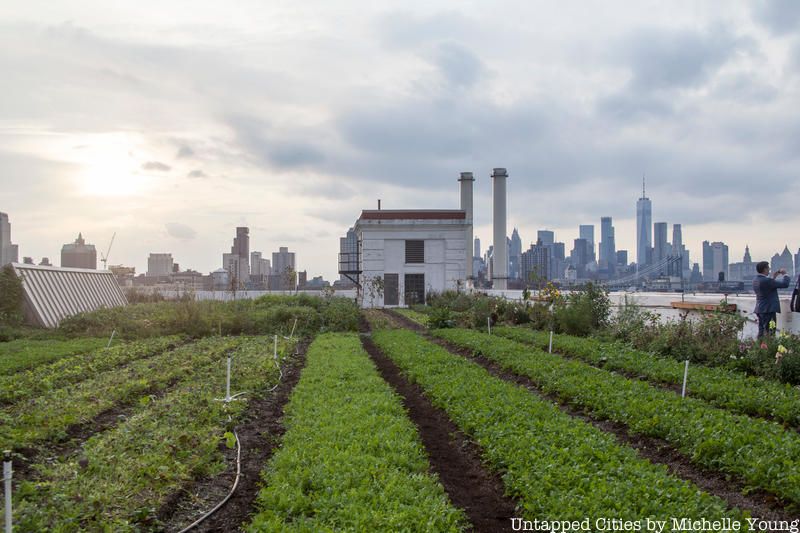
Open House New York Weekend is right around the corner and if you’re as excited as we are, you’ll be pleased to hear that there are even more ways to get involved. We previously curated a list of 13 must-visit locations to see during OHNY that don’t require reservations, and now we’re showcasing what’s on tap for two special series that will be taking place during the weekend.
As part of the The Final Mile, factories part of the Made in NYC network will open its doors on Friday October 16th (the day before OHNY Weekend) for “Food Factory Friday and Production Spaces.” Then on the 17th and 18th, select urban farms and food business incubators will be hosting open houses. These tours provide you with an inside look at the businesses’ unique spatial needs and their innovative farming techniques within the city’s dense urban fabric.
OHNY is also partnering with the Structural Engineers Association of New York (SEAoNY) to highlight some of New York City’s recent engineering feats. During “Engineering New York,” tours will give an insightful look at new buildings from the perspective of the structural engineers who helped transform them from an idea to a reality. All reservations begin tomorrow at 11am.
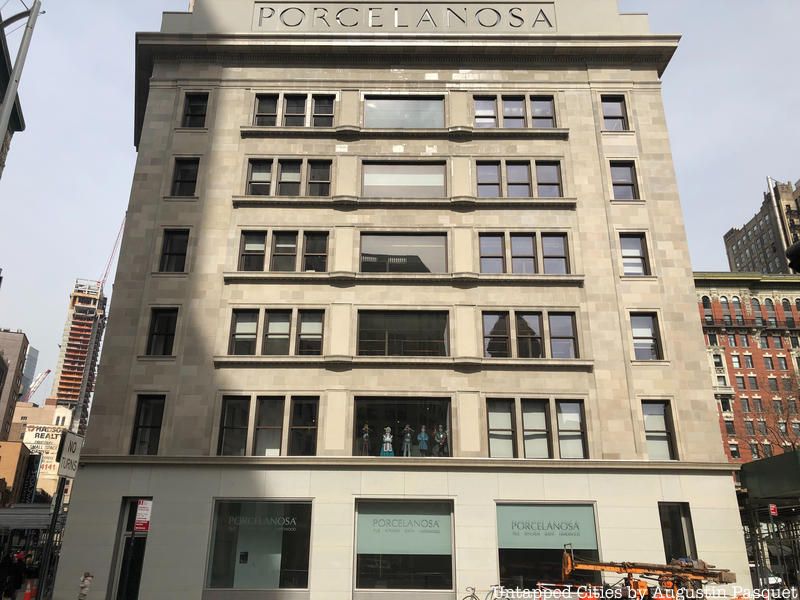
To create an iconic new flagship showroom for tile, kitchen, bathroom and hardwood company Porcelanosa, Foster + Partners, working with structural engineers from Gilsantz Murral Steficek, created an entirely new structure within the historic Commodore Criterion building. The result is a dramatic, light-filled, six level showroom that includes a design library with more than 1,000 references of tiles, mosaics, stones and hardwoods in a dramatic, top-level space. On OHNY Weekend, tour the newly opened showroom with architects (on Saturday) or structural engineers (on Sunday) to learn about how they crafted a dynamic, highly flexible new sequence of spaces within the building’s landmarked shell. Porcelanosa is located at 200 Lexington Avenue in Manhattan.

Brooklyn Grange is the leading rooftop farming and intensive green roofing business in the US. The Grange operates two of the world’s largest rooftop soil farms, including this site atop the historic Standard Motors Products Building in Long Island City with sweeping views of the five boroughs, and grows over 50,000 lbs. of organically-cultivated produce per year. In addition to growing and distributing fresh local vegetables and herbs, Brooklyn Grange also provides urban farming and green roof consulting and installation services to clients worldwide.
This 820-square foot intensive green roof serves as a source of fresh produce for building residents, as a means to assist in storm water management, and as a model for other New York City buildings. Spring 2015 marked the garden’s first growing season, producing a wide variety of vegetables, herbs, and medicinal plants. Umbrella House is one of the former Lower East Side squats. Since 1988 dozens have called it home, struggling to survive harsh conditions while creating viable alternative community and house model.

Brooklyn Navy Yard at BLDG 92 showcases the history and innovation of the Brooklyn Navy Yard, dating back to the Revolutionary War. Its current exhibition highlights New York City’s revolution in jobs and industry. After the federal government decommissioned the Yard in 1966, the Brooklyn Navy Yard Development Center seized the building to preserve the historic structure. The renovated building now includes a 4-story modern extension that houses BNYDC’s Employment center along with other leasable space and classrooms, and has received LEED Certification – Platinum Status from the U.S. Green Buildings Council

As we previously covered, the Hudson Yards development will bring 10 new high-rise buildings to the West Side, drastically changing the New York skyline. The project, costing roughly $15 billion, has already begun the construction of one 47-story high rise. The buildings will be filled with offices, luxury condos, retail space and sustainable green areas.
In addition to the high rises, the development is expanding the district with its new 7-line subway extension. The line originally terminated in Times Square but has recently extended 2 miles to a terminus at West 34th Street and 11th Avenue. The line can accommodate 6 trains to meet the district’s busy rush hour. For a look at the subway’s new terminal, check out our coverage.
The tour of Hudson Yards, led by structural engineers from Thornton Tomasetti, will take advantage of the elevated view from the High Line to help participants understand the structural feats involved in completing this massive project. (Please note: this tour will not access the actual construction site).
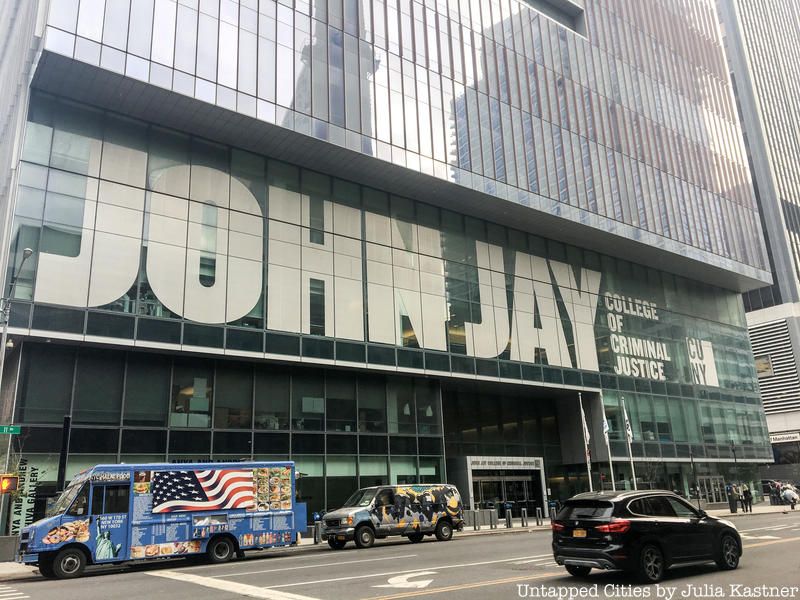
The new John Jay College of Criminal Justice was designed by Skidmore, Owings and Merrill LLP (SOM) and is located on 11th Avenue between 58th and 59th Streets. The new campus includes a 625,000-square foot building, four stories, a 500-foot long podium, a 14-story tower and a 65,000-square foot landscaped terrace. Confined to a city block, it provides all the functions of a traditional college campus.
The building has a unique visual effect depending on which direction you approach it from. According to SOM, fritted glass panels are staggered along the facades, while aluminum vertical fins are arranged in horizontal bands across the four sides of the buildings. These fins are finished with silver-speckled mica-flake paint. On the other side, they used a silk-screen with varying patterns of red dots.
This tour, led by experts from LERA Consulting Structural Engineers, will take participants through the stunning Kroll Atrium that anchors the cascading spaces both horizontally and vertically, with a series of grand staircases, escalators, lounges, and gathering areas and the outdoor Jay Walk, the park-like rooftop commons five stories above the sidewalk. This project has won top design awards from numerous industry organizations including the American Institute of Architecture (AIA) National Honor Award and The American Institute of Steel Construction (AISC) IDEAS2 Presidential Award.
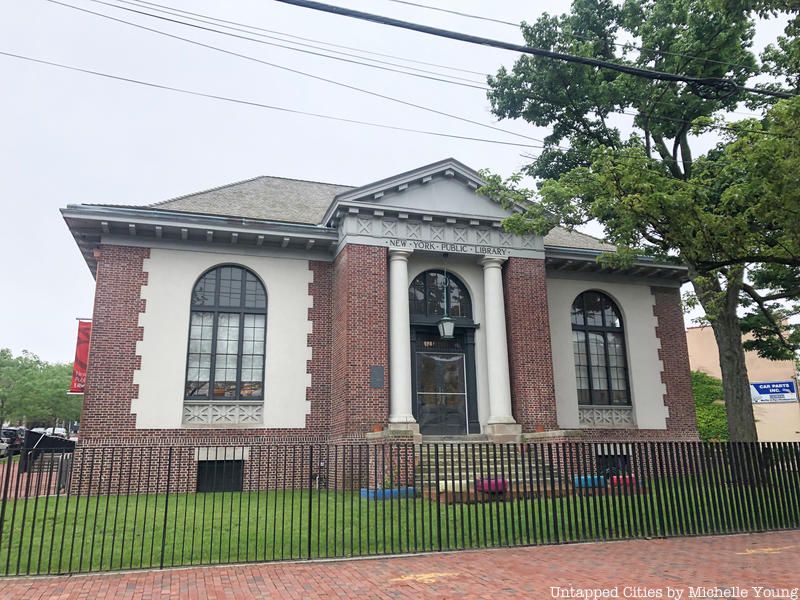
Last June, the New York Public Library reopened its Stapleton Branch on Staten Island, located on Canal Street. The new library, at 12,000 square feet, is more than double its original size. While the building has a modern twist, it still offers the “Carnegie Library” charm of the original. The renovation not only revamped the original 1907 library, but also created a sleek 7,000-square foot light-filled addition. The older building houses the Children’s Reading Room and the new structure houses the teen and adult collections, as well as extensive digital media. Architect Andrew Berman explained that “together, this library is a unified whole that embraces the New York Public Library’s history and its future as a vital public institution.”
As the Structural Engineers for the renovation, guides from Gilsanz Murray Steficek will discuss the challenges of working with existing buildings and the design for the new addition.
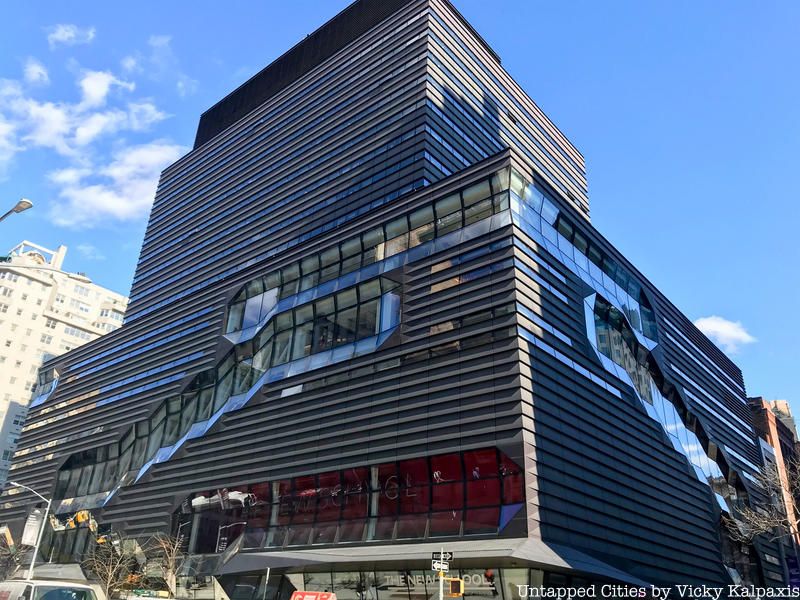
The New School University Center is not only a focal point for the campus life of the New School but it also serves as a model for sustainable design in New York City and in the country. Meeting LEED Gold standards, it stands as one of the greenest academic buildings in the country. The first seven floors are designed to accommodate academic functions and the nine remaining floors function as a 600-bed dormitory.
Tour the building with The New School staff and structural engineers from DeSimone Consulting Engineers to learn about the building’s structural and sustainable features.
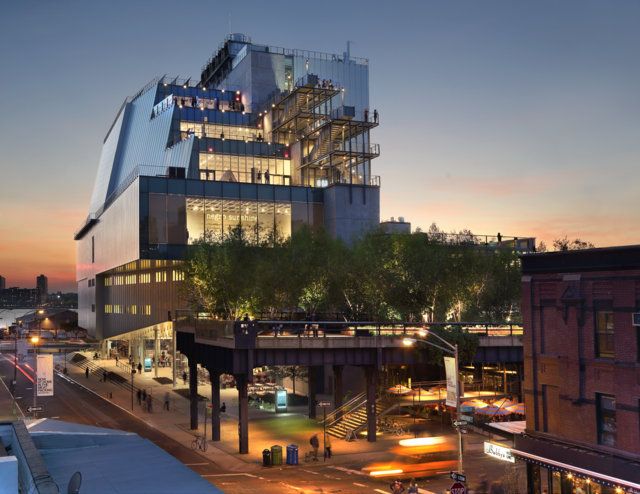
Photo by Ed Lederman
The new Whitney Museum of American Art, located on the New York High Line, was designed by architect Renzo Piano. According to Piano, “the design for the new museum emerges equally from a close study of the Whitney’s needs and from a response to this remarkable site.” The new space includes approximately 50,000 square feet of indoor galleries and 13,000 square feet of outdoor exhibition space and terraces facing the High Line. In addition, the Gansevoort Street entrance is dramatically cantilevered and shelters an 8,500-square foot outdoor plaza just steps away from the southern entrance to the High Line.
Structural engineers from Silman will guide tours highlighting some of the structural features of this iconic new New York City building. These include large column-free spans, exterior terraces, and exposed structure.
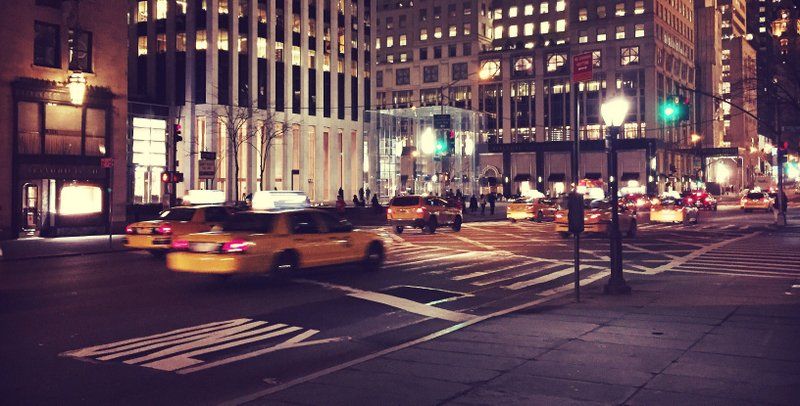 Photo by Riff Chorusriff for Untapped Cities.
Photo by Riff Chorusriff for Untapped Cities.
The 5th Avenue Apple Store is one of the best-known and most successful retail sites in the world. Located in the middle of GM Building Plaza, the 30-square foot glass tube has been called the “world’s smallest skyscraper.” Harry Macklowe, in partnership with Apple and Steve Jobs, developed the cube in 2003. The store itself lies under the cube and is open 24 hours of the day, every day of the year.
The tour, led by Eckersley O’Callaghan’s Gregor Horstmeyer, will examine the glass cube and spiral staircase from an engineering, fabrication, and construction perspective. Attention will be given to specific connection details that helped achieve a design of maximum transparency and simplicity in this crowded Manhattan plaza.

As we covered in our Top 10 Coffee Shops in Brooklyn, Brooklyn Roasting Company has been rapidly expanding as they’ve taken over the former warehouse at 25 Jay Street in DUMBO. This coffee company takes being “green” very seriously – not only are their beans all fair-trade, Rainbow Alliance and organic certified, but they also use recycled materials and refurbished equipment throughout their shop. Their funky coffee blends range from “Cedar & Sweet Summer Fruit: Tanzania Peaberry” to “Noble, Nutty, Sweet & Stout: Rwanda.”
Liddabit Sweets is a Brooklyn-based candy shop committed to using as many locally-sourced and organic ingredients as possible. They specialize in all things candy – from homemade candy bars to caramels to lollipops. You can find their shops in Industry City and Chelsea Market and their products can be found at a variety of locations throughout the city. For a full list of their locations, click here.
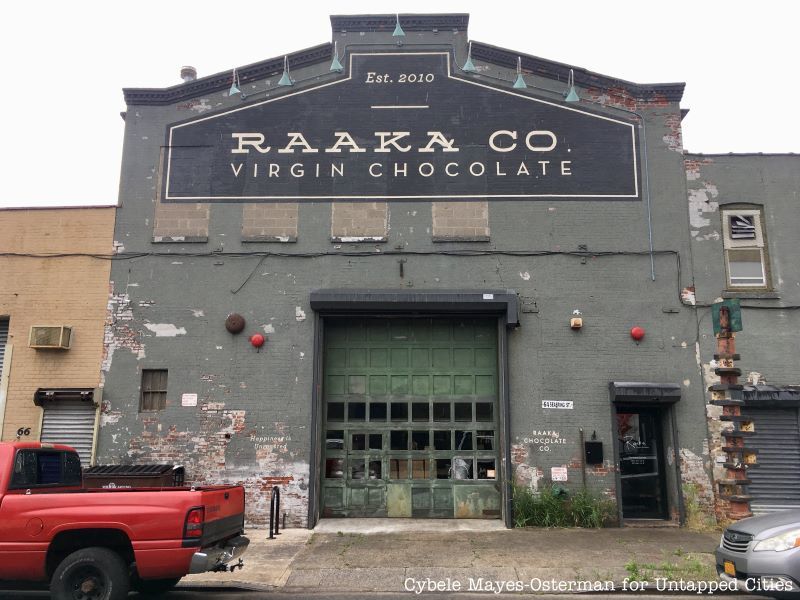
Raaka Chocolate, located in Red Hook, Brooklyn, explores the process behind low-temperature chocolate-making. Developed by Ryan Cheney (who oddly discovered his joy of cocoa roasting while attending yoga school in Thailand) with the help from Nate Hodge, a musician and gastronomist, Raaka Chocolate now partners with organizations in Bolivia and the Dominican Republic to create their fair-trade, green-certified chocolate.
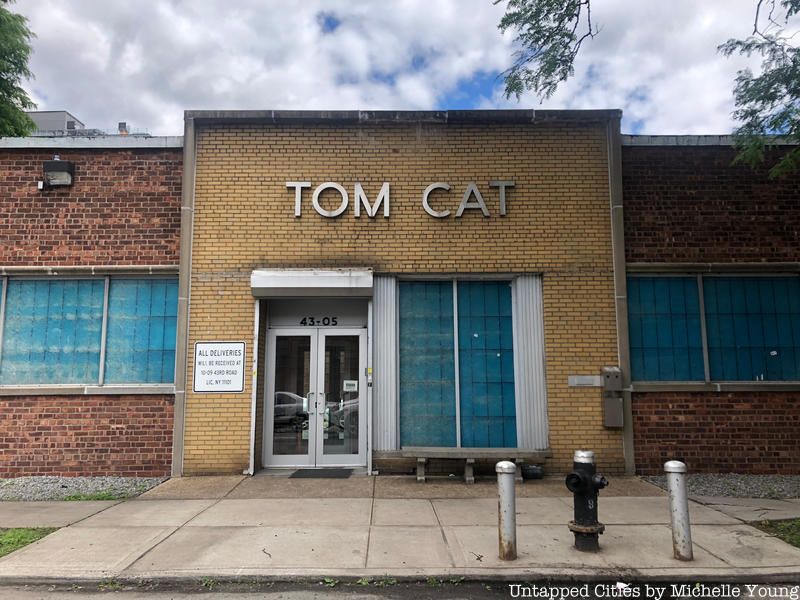
Long Island City’s Tom Cat Bakery provides its community with freshly baked, authentic French, Italian and other artisan breads 24 hours a day. Since 1987, Tom Cat has been providing bread to four-star New York restaurants and since 2001, they’ve been creating sweet goods as well. Their website, which practically reads with a thick Long Island accent, promises that they “use only the ingredients your grandmother would use if she were making these baked goods.”
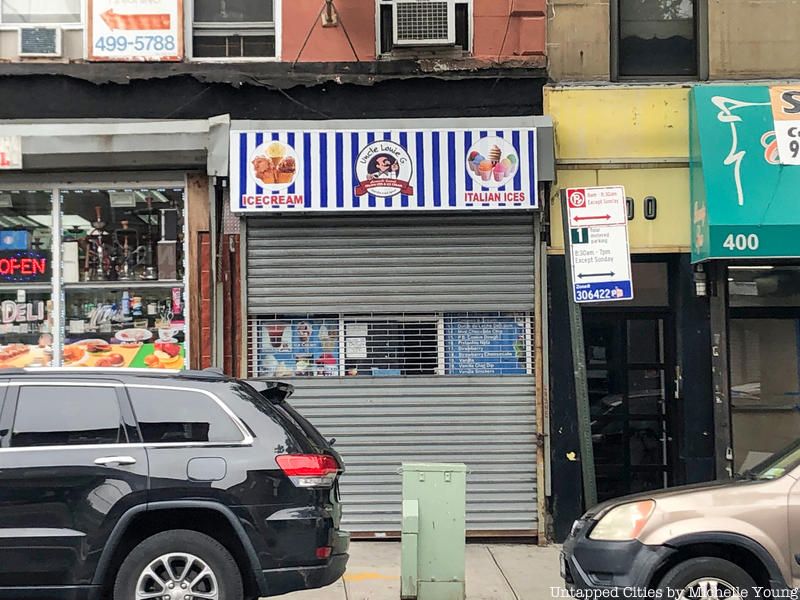
Uncle Louie G attempts to transport you to back 1959 Brooklyn on a hot summer day – the kind of day where the only thing to make you forget about the sweltering heat was a delicious Italian ice. Uncle Louie G has been developing homemade Italian ices and ice creams for years. Since its humble beginnings on the streets of Brooklyn, you can now find their products in 45 different stores across 8 different states. Guaranteeing great product quality, Uncle Louie G reports all of its ingredients and nutritional facts on its website.

We’ve previously covered that the land around the former Domino sugar factory has been transformed into a farm and skatepark. This farm is now a community garden that grows organic flowers and produce. Rather than selling their goods, the gardners invite you to join them for dinner at their picnic tables instead. You can nearly reach over and pluck out a leaf of lettuce while you eat.
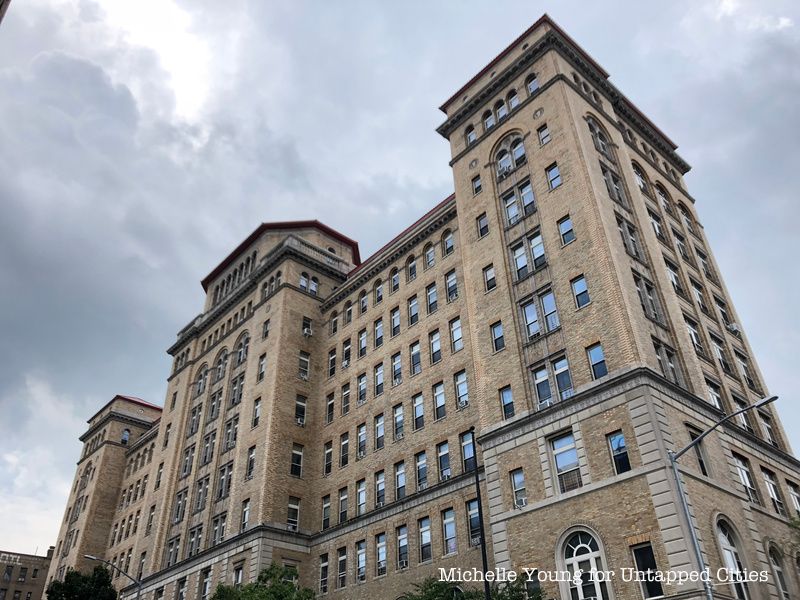
From 1926 to 1976, the Morrisania Hospital served a mainly second-generation immigrant population. The building, like many parts of the Bronx during the 1970’s and 80’s, fell into disrepair and stood barren until 1997. WHEDco then bought the building and revived the location, transforming it into a community hub.
The Bronx CookSpace, located in the former hospital, is a fully-equipped commercial kitchen that provides entrepreneurs with an affordable space to test products and ideas. The 4,000-square foot kitchen is divided into four workspaces that can be rented alone or in combination, 24/7. Kitchen equipment includes dry, cold and frozen storage, Southbend stovetops, Duke convention ovens, Hobart dishwashing stations, Blodgen pizza ovens, and commercial knives and stand mixers.
Next, get acquainted with the 13 must-visit locations you can check out during OHNY Weekend without reservations.
Subscribe to our newsletter